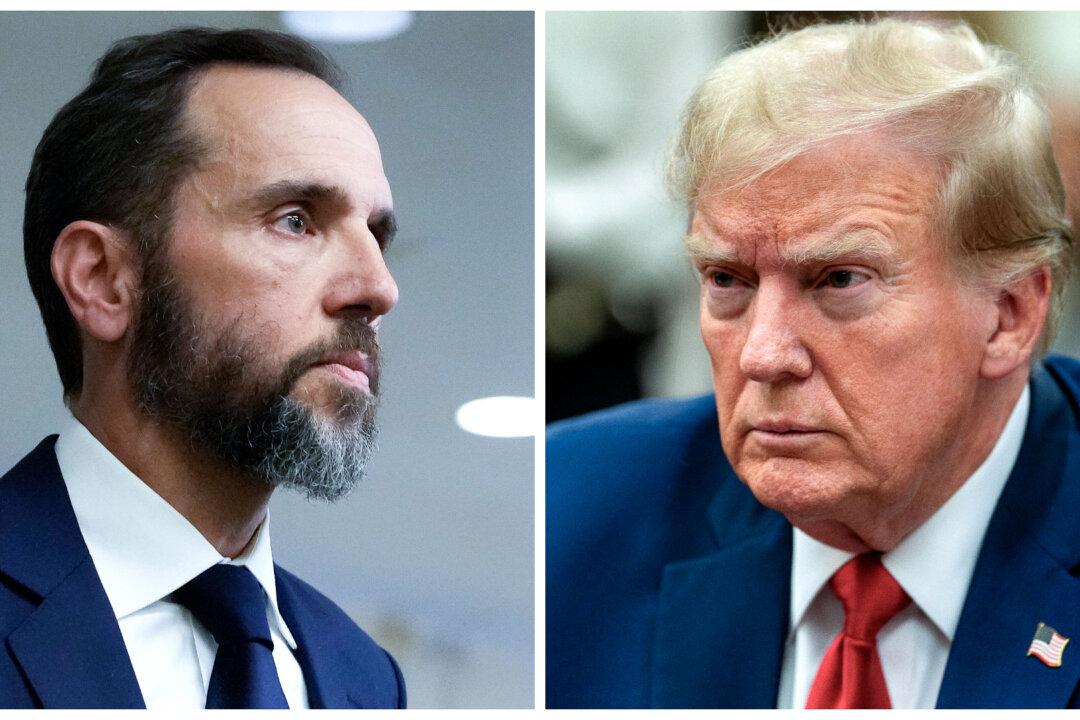Former Attorney General Edwin Meese and two scholars submitted an amicus brief with the Supreme Court that the Department of Justice’s (DOJ) appointment of special counsel Jack Smith was unconstitutional and that every action against former President Donald Trump should be declared null and void.
“This Court should reject Mr. Smith’s request for certiorari before judgment for the simple reason that he lacks authority to ask for it,” according to Wednesday’s filing from Mr. Meese and two constitutional scholars. “Nor does he have authority to conduct the underlying prosecution. Those actions can be taken only by persons properly appointed as federal officers to properly created federal offices.”





